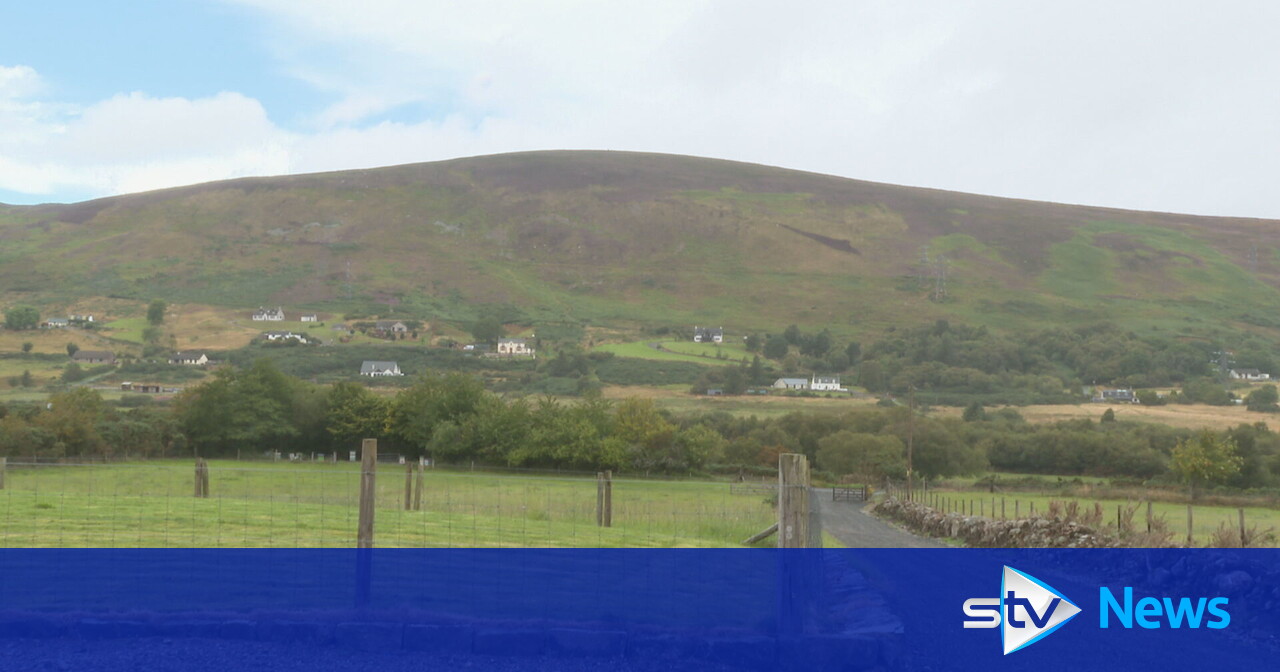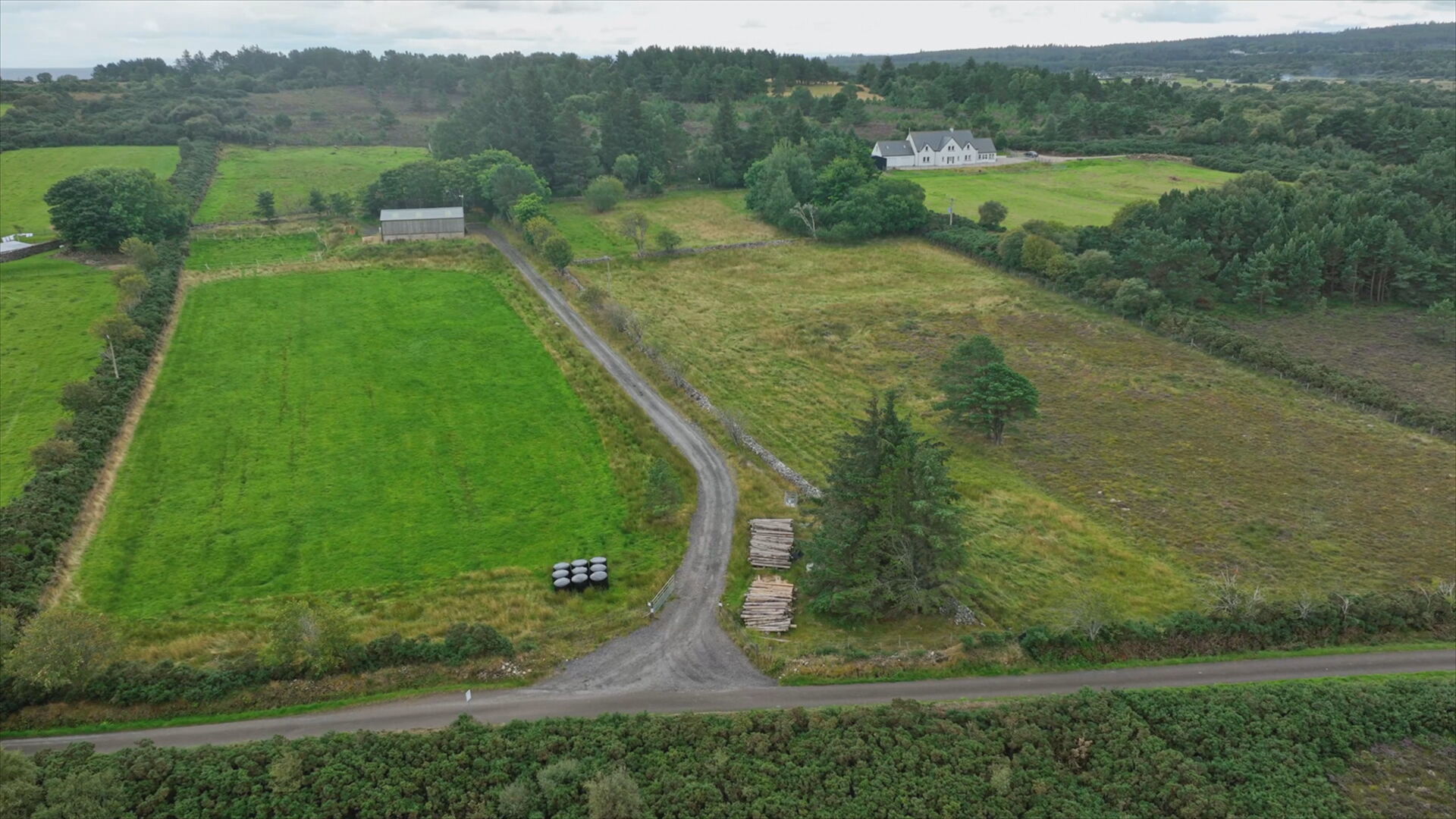World
Green energy battery storage scheme ‘could pose major safety risk’

A former UK Government adviser has warned that a proposed green energy battery storage scheme close to a home in the Highlands could pose a major safety risk.
Crofters in Brora are concerned by a neighbour’s plans to lease his plot to a renewables firm.
The UK and Scottish governments have defended the technology despite fires at a number of battery storage plants around the world.
Brora, on Sutherland’s east coast, is among many proposed sites.
Developers have offered huge rewards in an effort to tempt residents to provide land for such a scheme.
STV News understands that a solitary crofter has expressed an interest. His neighbours are furious.
One of them, grazings committee clerk John McMorran, lives within 50 yards of the potential site.
He fears the project would ultimately devalue property.
McMorran said: “These battery energy storage systems run at about 80, 90 decibels when the fans are running to cool the batteries during cooling periods. That is an unacceptable noise at night, next to residences.
“They will try to mitigate with four-metre-high panels but that will just be a further assault on what is a beautiful area and further trash the amenity of Clynelish.”
The crofter interested in taking up the offer refused to comment. Others say the scheme would clash with the culture of crofting.
The number of battery energy storage sites being proposed in Scotland is expected to increase drastically as part of the move towards net zero.
The idea is that giant batteries will store excess power generated by renewables like wind and solar and be stored for future use.
But cases have surfaced of rogue lithium batteries overheating and triggering a chain reaction and toxic fire.
‘It’s a danger to life’
With the number of planning applications growing, residents across the country are worried about their impact and safety.
A former UK Government adviser has serious concerns about their location.
Physics professor Sir David Melville said: “Serious research that’s well established and well known, modelling the kind of bloom that you might get from a fire in lithium ion batteries, [shows] it’s dangerous to life let alone illness that might be caused by the toxicity of these fumes at 400 metres.”
Alec Kidd, a retired fire safety officer, said: “Hydrogen fluoride gas is extremely toxic in very small quantities and the fact that the fire brigade don’t seem to be able to extinguish it safely because of the risk to the crews from explosions.
“You’ve had a number of firefighters killed and some have had with lifelong brain injuries from the explosions.”
Scottish Fire and Rescue Service area commander Chris Getty said: “Responding to any emergency involving a battery energy storage site, our crews can employ a range of skills and procedures.
“However, a robust approach to prevention and ensuring industry safety standards remain key to managing these risks.”
‘BESS are crucial for renewable energy’
 STV News
STV NewsThe company behind the Brora project, OPD Energy, offered a comprehensive response to public concerns raised by STV News.
In a statement, it said: “We recognise the importance of preserving the natural beauty and cultural heritage of the northern Highlands.
“Our goal is to balance the need for sustainable energy solutions with the protection of local communities and environments.”
Responding to specific criticisms, it said: “We are committed to conducting thorough environmental and social impact assessments for all potential sites. This includes exploring all possible locations and prioritising those that minimise disruption to local communities.
“We have engaged with local stakeholders and will continue to do so to ensure their voices are heard and their concerns are addressed.
“While brownfield sites are often preferred, each location is chosen based on a comprehensive evaluation of safety, environmental impact, and community feedback.
“The brownfields available aren´t enough to cover the need and targets to be met in this industry. Regardless, their location in the vast majority of the cases aren´t suitable for this type of development as they aren´t close enough to areas where the grid has the need and capacity to connect these facilities.
“While we understand the apprehension about industrial developments, it’s important to note that battery energy storage systems (BESS) are crucial for supporting renewable energy integration and grid stability.
“These systems help reduce reliance on fossil fuels and contribute to a cleaner, more sustainable energy future. We are dedicated to implementing these technologies in a way that respects and preserves the local environment as possible.”
It added: “While we haven’t built any battery energy storage system facilities yet, it’s important to note that this is a brand new technology.
“Companies, including ours, are just beginning to develop and build these types of facilities.”
‘Ruination of the cultural landscape’
On safety, the company said: “It’s our top priority. Our BESS facilities are equipped with advanced fire detection and suppression systems designed to minimise the risk of fire.
“In the rare event of a fire, our systems are designed to contain and control it effectively.”
Dr Nick Lindsay, chairman of Clyne Heritage Society, said: “I think this is a ruination of the cultural landscape.
“People have lived here since the Bronze Age – 200 years ago this area was converted to lots for people who were cleared from the townships in the hills up there and they’ve lived here, crofting happily, for the last 200 years. This is just not in the right place.”
Lyndsey Ward of the campaign group Communities B4 Power Companies urged battery storage developers to build them within the boundaries of windfarms and not in open countryside.
She said: “The windfarm developers have trashed huge swathes of rural Scotland with their remote windfarms.
“They’ve created the problem for needing storage because they’re so unreliable. So, put them there – miles away from people.”
UK Gov: ‘Battery site fires are extremely rare’
The UK Government says the highest safety standards are in place to ensure safety at battery energy storage sites.
A Department for Energy Security and Net Zero spokesperson said: “Battery fires at storage sites are extremely rare in the UK.
“We already have the highest safety standards in place that require manufacturers and industry to ensure products are safe throughout their lifespan.”
A Scottish Government spokesperson said: “Community safety is of the utmost importance, which is why the Scottish Fire and Rescue Service continually reviews and develops its operational response to any new and emerging technology to keep communities safe and ensure the highest level of preparedness.
“Our Fourth National Planning Framework (NPF4) places climate and nature at the centre of our planning system and makes clear our support for all forms of renewable, low-carbon and zero emission technologies, including energy storage. All applications are subject to site-specific assessments.
“Battery storage will play a role in the future energy mix of Scotland. As set out in our draft Energy Strategy and Just Transition Plan, battery storage offers fast responding, dispatchable power when required.”
Plans for six battery plants at windfarms are currently being considered by Highland Council, along with 12 stand-alone schemes.
Follow STV News on WhatsApp
Scan the QR code on your mobile device for all the latest news from around the country











